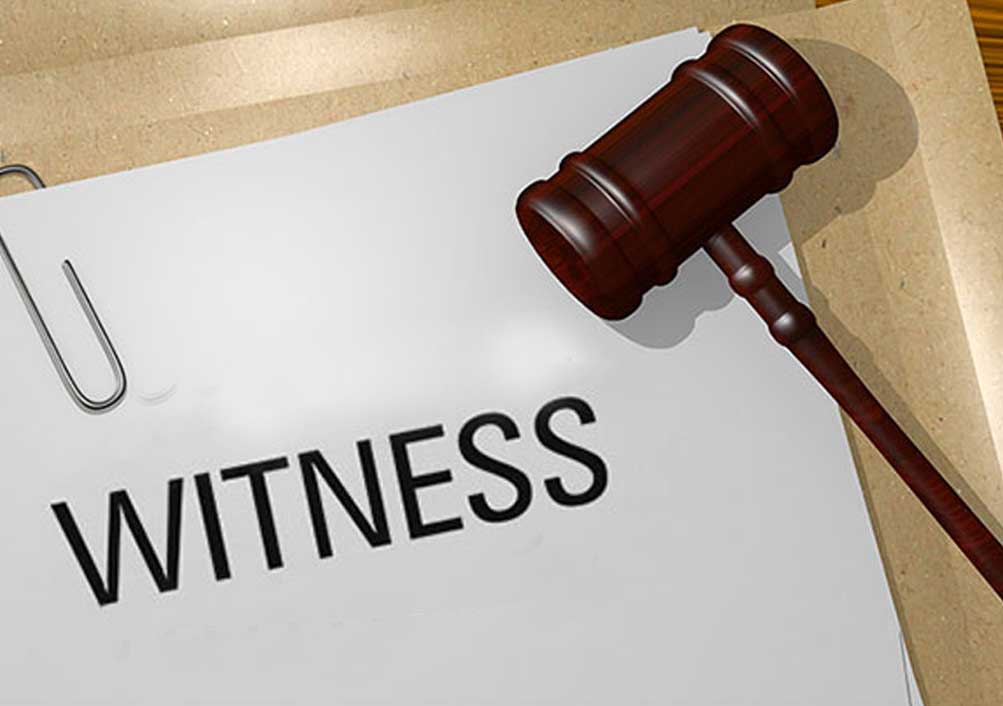On being satisfied that disclosure of name & address of protected witness could endanger him, Court can permit redaction of such details: Supreme Court

Read Judgment: Waheed-ur-rehman Parra V. Union Territory of Jammu & Kashmir
Pankaj Bajpai
New Delhi, February 28, 2022: While considering a case of arrest of persons accused under Unlawful Activities (Prevention) Act, 1967 and the Arms Act, 1959 and observing that the provisions of Section 44 of UAPA, Section 17 of NIA Act, and Section 173(6) of CrPC are in the nature of a statutory witness protection, the Supreme Court has said that on being satisfied that the disclosure of the address and name of the protected witness could endanger him and his family, the Court can permit redaction of the address and particulars of the witnesses which could disclose their identities.
A Division Bench of Justice Sanjay Kishan Kaul and Justice M.M Sundresh observed that that the order passed by the Trial Court is both fair and reasonable for the prosecution and defence while protecting the witnesses and not depriving the defence of a fair trial with the disclosure of the redacted portion of the testimony u/s 207 of the CrPC.
Going by the background of the case, an FIR was registered u/s 18, 19, 20, 38 & 39 of the UAPA r/w/s 7/25 of the Arms Act, 1959 and Sections 3/4 of the Explosive Substance Act, 1908 against one Syed Naveed Mushtaq and others. Later, the National Investigation Agency (NIA) took up the investigation into this FIR u/s 6(4) r/w/s 8 of the NIA Act and Waheed (Appellant) was arrested. Thereafter, Union Territory of J&K (Respondent) filed an FIR u/s 13, 17, 18, 38, 39, 40 of the UAPA r/w/s 120-B, 121, 121-A and 124-A of IPC without naming the appellant. On the same set of allegations and evidence as that of the NIA charge-sheet, the respondent filed another final report before the Special Judge (NIA Act), Srinagar where the appellant was arraigned as the sole accused. The respondent also moved an application u/s 44 of the UAPA r/w/s 173(6) of CrPC before the trial court seeking declaration of five witnesses as protected witnesses and for certain documents to be excluded from the documents to be provided to the accused.
The trial court allowed the application observing that in view of the sensitivity of the case, it appeared that there was a threat to the life and property of the witnesses and their families. Consequently keeping in view the scope and object of Section 44 of the UAPA, the statements of prosecution witnesses were kept in a sealed cover in view of their declaration as protected witnesses. At the same time, the application u/s 207 of CrPC filed by the appellant before the trial court praying for a redacted copy of the statements of protected witnesses, was resisted by the respondents by contending that Section 207 was conditional u/s 173 CrPC and could not supersede it, and that the right of the accused to be supplied with all material as envisaged u/s 207 could thus not be inferred to be absolute.
The trial court however, allowed the application of the appellant while observing that in view of Section 44, UAPA, and Sections 207 and 173(6) of CrPC, it was amply clear that the prosecution was duty bound to provide the copies of the statements of protected witnesses to the accused in order to provide a fair trial.
When the matter reached the High Court, it was observed therein that in the light of Sections 17 & 44 of the UAPA it was clear that the legislature was fully aware of the existence of the general safeguards provided u/s 173(6) CrPC and found it fit to give additional safeguards. The High Court opined in favour of the respondents, stating that the trial court having allowed the plea of protected witnesses and directing their testimonies to be kept in a sealed cover, permitting copies of redacted statements would amount to revisiting and reviewing its own orders, which was not permissible.
After considering the submissions, the Top Court found that it was a high profile case and would attract high public and media attention, apart from some dreaded terrorist organization(s) being part of the conspiracy and the consequent investigation against them.
There was perceived to be an imminent danger to the life and property of such witnesses and, thus, in the interest of justice and in the interest of these witnesses they were required to be declared as protected witnesses, and in terms of Section 44 of the UAPA, copies of their statements ought to be excluded from the copies to be provided to the accused and be kept in a sealed cover, added the Court.
Speaking for the Bench, Justice Kaul observed that the provisions of Section 173(6) of the CrPC r/w/s 44 of the UAPA and Section 17 of the NIA Act stand on a different plane with different legal implications as compared to Section 207 of the CrPC.
“The occasion for the appellant/accused to come in and seek redacted statements under Section 207 of the Cr.P.C. arose when the trial was to commence and the appellant was of the view that in order to plead an appropriate defence there should be full disclosure minus the redacted portion so that the testimonies of those witnesses could be utilised without disclosing their identities or their place of residence. This is not, in our view, an exercise of the power of review but the exercise of powers at two different stages of proceedings under two different provisions. The plea of the prosecution of this being a review power is, thus misplaced”, added the Bench.
The Apex Court therefore set aside the order of the High Court and restored that of the Trial Court.
Sign up for our weekly newsletter to stay up to date on our product, events featured blog, special offer and all of the exciting things that take place here at Legitquest.




Add a Comment